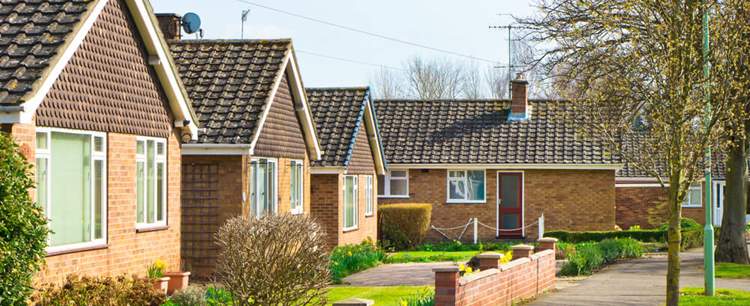Are you in the 36% of brits set to inherit a property?
A survey found that 36% of Brits will be inheriting a property, equivalent to 18.64 million people.
The research by bridging lender Market Financial Solutions (MFS) of 2,000 UK adults found that the anticipated market value of the property they are due to inherit is £347,500.
This data is supported by research from Royal London, which estimates that £400 billion worth of property will be passed from grandparents to younger generations in the coming decade.
When asked about their intentions for the properties, the main responses were:
- 67% say they have no intention of living in it
- 55% of these respondents are looking to sell as soon as possible so that they can re-invest the money
- 32% are looking to undertake some form of refurbishment so that the property will be in better condition to sell or place on the rental market
The study also revealed that 25% have no idea what to do with the property. 40% of 18-34 year olds require advice on what to do with their inherited property.
If you’re looking to rent out the property and become a landlord, there’s some information you need to know regarding Tax.
What is inheritance tax?
Tax is complicated at the best of times and Inheritance Tax is no exception. Unfortunately, Inheritance Tax usually results in issues for the beneficiaries of your will too.
Inheritance tax liabilities
The principle is that you pay Inheritance Tax on all the assets, money, and property you own at the time of your death.
Currently, there is an allowance of £32500 and the taxable amount is anything above that figure. If you are leaving the home in which you live to your spouse or children, you also qualify for an additional £125,000 allowance. This means you must pay Inheritance Tax on anything in excess of £450,000.
For many people, that might seem like a generous allowance, but not if you’re the landlord of a buy to let property. If the value of your estate is considerably more than that initial £450,000, the Inheritance Tax payable on the balance is at the rate of 40%.
For example; If you have assets amounting to £1 million once your bank balances, you qualify for a potential allowance of £450,000. However, your estate must still pay 40% Inheritance tax on the remaining £550,000. This results in a tax bill of £220,000!
Who pays?
Valuation of your estate, the distribution of the assets and the payment of liabilities are all carried out by executors during the period of probate.
During that period, the executors must ensure that any property remains adequately insured. More information on insurance for probate properties can be found in our article, here.
Before the assets are distributed, the estate’s liabilities must first be paid, including any Inheritance Tax.
That could result in a hefty bill, especially if you the £220,000 bill example above. In those circumstances, the executors may need to sell any buy-to-let property you owned in order to pay the Inheritance Tax liability and meet the executor’s fees.
Making provisions to meet the Inheritance Tax bill
With careful financial planning, you may be able to save such a burden by making provisions in advance for the bill you know is coming upon your death.
One way is by saving enough for the expected Inheritance Tax demand and keeping that money in a separate account. The executors of your will can use this specifically for the bill.
Alternatively, you might want to arrange a whole of life insurance policy that pays out when you die in an amount you expect to be broadly equivalent to your Inheritance Tax bill.
Whatever decision you make, here at UKInsuranceNET we have an experienced team who are ready to help with your insurance needs. Get in touch with one of the team today and see how we can help with your insurance needs. Give Us a call on 01325 346 328 today.



